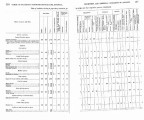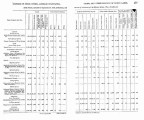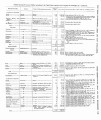| Title |
Annual Report of the Commissioner of Indian Affairs - 1875 |
| Subject |
Indians of North America; Indian reservations; Federal government; Maps; Crime; Treaties; Land use; Agriculture; Grazing; Religion; White people--Relations with Indians; War; Hunting; Tribal government; Indigenous peoples--North America |
| Keywords |
Indian Agency; Reservations; Annual Report; Military; Land Rights; Superintendency; Indian; White Relations; Native Americans |
| Publisher |
Digitized by J. Willard Marriott Library, University of Utah |
| Tribe |
Ute |
| Language |
eng |
| Description |
Excerpts concerning Utah from the Annual Report of the Commissioner of Indian Affairs - Courtesy of the University of Wisconsin Digital Collections. The Commissioner of Indian Affairs submits a report regarding the Indian Wars, Indian laws, the value of Indian land, the transfer of the BIA to the War Department, etc. The Commissioner discusses the Utes' work ethic, relationships with Whites and the federal government, use of language, and consumption of rations. Agents from Colorado submit reports regarding the Southern Utes. The Uintah Ouray Agent submits a report outlining demographic data, industrial pursuits, health, and performance at schools |
| Type |
Text |
| Coverage |
Uintah and Ouray Indian Reservation (Utah); Utah; Washington (D.C.) |
| Format |
application/pdf |
| Rights |
Digital Image © 2011 America West Center. All Rights Reserved |
| ARK |
ark:/87278/s6tt7mnv |
| Creator |
Commissioner of Indian Affairs; Critchlow, F. L. (Frank Linley), 1869- |
| Spatial Coverage |
Uintah and Ouray Indian Reservation (Utah); Utah; Washington (D.C.); Beaver (Utah); Sevier County (Utah); Ruby Valley (Nev.); Nevada; Colorado |
| Setname |
uaida_main |
| ID |
369072 |
| Reference URL |
https://collections.lib.utah.edu/ark:/87278/s6tt7mnv |









































































